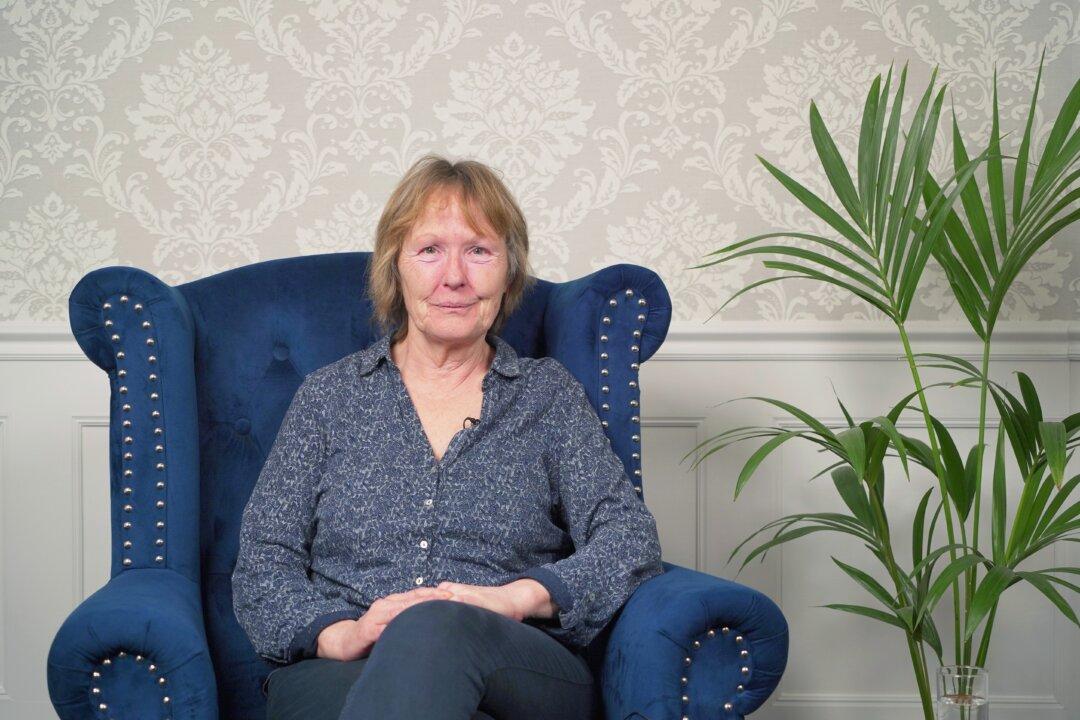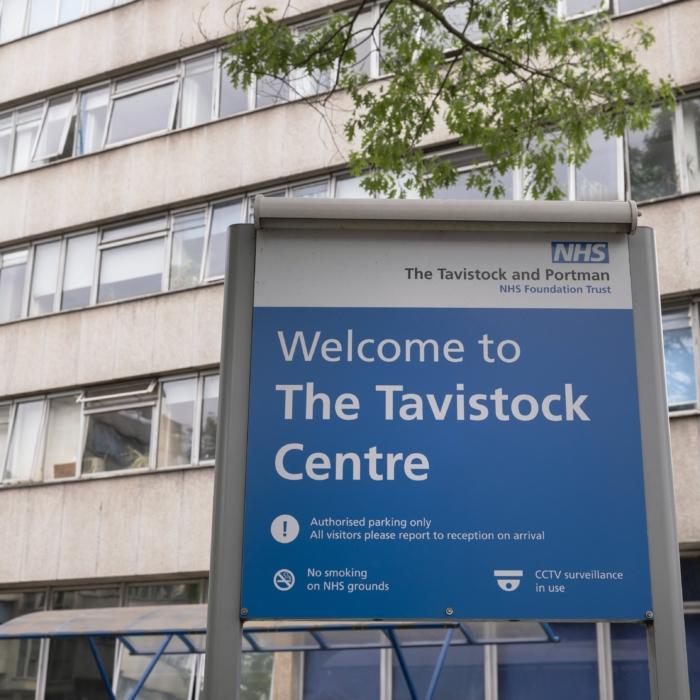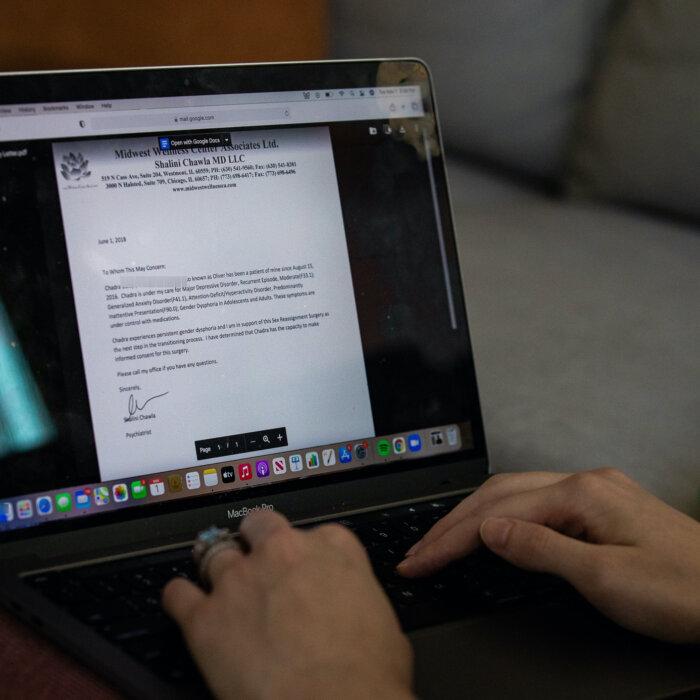The practice of so-called gender affirmation is not kind, but cruel, said Stephanie Davies-Arai, founder and director of Transgender Trend.
Speaking to NTD’s “British Thought Leaders” programme in March, Ms. Davies-Arai said we can either teach children “reality and the truth, which is you can’t change sex,” or transgender ideology, but not “a bit of both.”
She also spoke of the irreversible harm that puberty blockers and cross-sex hormones can do to children, and said older teens are “a really, really vulnerable age group.”
Last month, NHS England confirmed that it will no longer routinely give children puberty blockers because there’s not enough evidence to support their safety or clinical effectiveness.
The plan was previously published in draft guidance, which also included a clarification that so-called social transition in prepubescent children should only be used under limited circumstances.
The changes came after an interim review on the Tavistock gender identity development service (GIDS), which was NHS England’s only gender clinic, found that the clinic appeared to have used “an affirmative, non-exploratory approach,” and that carers felt pressured to adopt the “unquestioning affirmative approach.”
However, Ms. Davies-Arai said the changes didn’t affect adult clinics, which take 17-year-olds.
The clinics are “ideologically based, the model is affirmation and informed consent,” she said.
“There’s nothing else like that in the NHS where the patient self diagnose, their self diagnosis is accepted by the doctors, and they’re given irreversible, really serious medical intervention on the basis of an identity.”
Before puberty blockers were restricted, 16-year-olds who had been on them for over a year could progress to cross-sex hormones. NHS England has now said it will continue giving cross-sex hormones to children as young as 16 if they meet certain criteria.
Also, “in the adult clinics ... in a couple of appointments, you can be referred for surgery to have your breasts removed at 18, you can have genital surgery. So, with no safeguards at all,” Ms. Davies-Arai said.
Vulnerable Teens
Describing teens who are going to university, “being away from home for the first time,” and finding “this community of queer identity rights groups, LGBTQ+, whatever rainbow groups,” the campaigner said, “So that’s a really vulnerable age group, completely on their own, not yet grown up as any parent knows, and yet they are being highly influenced by universities that are all captured.”Since Tavistock GIDS opened its doors in 1989, the proportion of girls grew from around a quarter to three quarters of those referred to the clinic, and Ms. Davies-Arai said now de-transitioners are predominantly young women.
“There are young men as well, but the young women have typically taken testosterone and had a double mastectomy. The hair and beard growth is for life. Some have developed male pattern baldness. They have no breasts, they are now trying to be women again,” she said.
Ms. Davies-Arai paid tribute to de-transitioners who she has worked with, saying they are “so courageous.”
Social Transitioning
Ms. Davies-Arai also expressed concerns over social transitioning in schools, despite the government’s plan to rein in the practice.In schools, social transitioning can include actions such as changing a child’s name, uniform, or allowing them to use facilities designed for their opposite sex.
In December last year, the government published draft guidance for consultation, saying schools should engage in a period of “watchful waiting” before considering a request to transition, but the guidance doesn’t ban social transitioning.
It also allows an exception in the requirement of involving parents, when the school believes doing so “might raise a significant risk of harm to the child.”
Ms. Davies-Arai said “any loopholes in this guidance at all” would mean the situation will remain “as it is now, which is activist teachers dictate dictate policy in the school—or the activist parent of the ’trans child.'”
“It is actually all or nothing. I mean, do we teach children reality and the truth, which is you can’t change sex; and the definition of girl is young, human female; a girl isn’t a gender identity, it’s not a subjective identity, it’s a biological reality. Do we teach children reality? Or do we teach them ideology? You can’t do a bit of both,” she said.
On March 15, former Prime Minister Liz Truss’s bill, which seeks to ban puberty blockers, clarify the meaning of sex in the Equality Act 2010, and ban public authorities in England from facilitating the social transitioning of children, was allegedly filibustered in the House of Commons.
The bill was not discussed because time had run out after MPs spent time naming their pets in a debate on animal welfare.
Invented Protected Group
Commenting on claims that Ms. Truss’s bill is discriminatory towards so-called trans kids, Ms. Davies-Arai said: “Once you invent that category of people, say there’s this group of children who are trans even though trans doesn’t mean anything—then that’s a group that has protected rights, and that’s the way it’s taken forward.”She also disputed the claim that it’s unkind to not affirm a child’s belief that he or she is transgender.
“We have to understand that gender affirmation is not being kind, gender affirmation is affirming a girl’s self hatred, it’s affirming a delusion in a way that we would not affirm the delusion of being fat that anorexic children have; we would never do that. We would not see it as kind.
“So like the girl who believes herself to be a boy is in reality, not a boy, and to actually encourage children to deny what is reality and what they can actually never change, I think is cruelty.”








